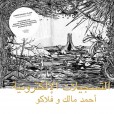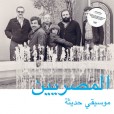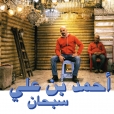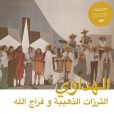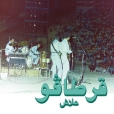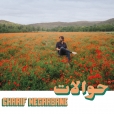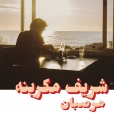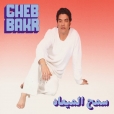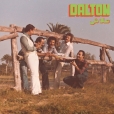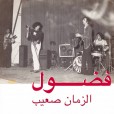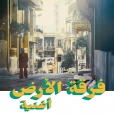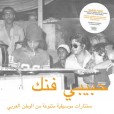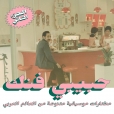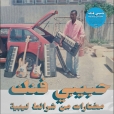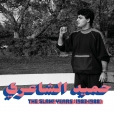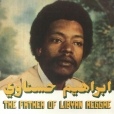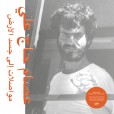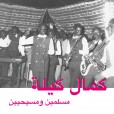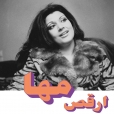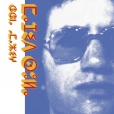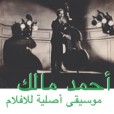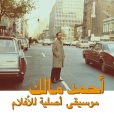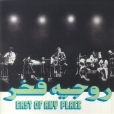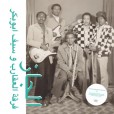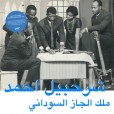Your basket is empty

‘Megarbane finds a sonic through-line in his surrounding soundscapes as he draws on the chaotic energy of the crowded Beirut metropolis (Souk El Ahah), the warm atmosphere of the Lebanese countryside (Chez Mounir), or the lushness of a Mediterranean beach resort (Portemilio). In many ways, Marzipan is a cartographic feat — it travels and traces a journey across many dimensions, both sonic and physical. Megarbane’s instrumental catalogue is suitably wide-ranging: toy glockenspiel, harpsichord, pedal steel, a classic Wurlitzer et al are used liberally on the record. Free-ranging influences — beloved artists like Ahmed Malek and Issam Hajali, West African funk, European soundtracks — result in a record of somewhat unparalleled expansiveness. Floating melodies and frantic rhythmic interludes nestle together with psychedelia — fuzz-drenched guitar, sliding microtonal interludes, hypnotic rhythmic breakdowns. The resultant sound is as sprawling as the musician’s instrumental dexterity. The closer Bala 3anouan can be translated loosely to ‘without address’ — a fitting final word.’
A groundbreaking, 1978 blend of Arab, jazz, Baroque pop, folk, and Brazilian styles like Bossa Nova, Tropicalia and MPB, with Fairouz’ son Ziad Rahbani as musical arranger, setting Palestinian poetry by Samih Al Qasem, Tawfiq Ziad, and the great Mahmoud Darwish.
A mix of overlooked gems and local boomshots from the cassette tape scene in Libya, during the late 80s to early 2000, when independent artists relied on makeshift home studios or travelled abroad to record in Tunisia and Egypt. A judicious mash-up of boundary-pushing sounds which reflects this precariousness and nascency; also the political and cultural crossroads at which Libya found itself. North African rhythms meet Arab melodies and deep African roots. Disco and house run into gritty pop. Reggae courses through, with an unmistakable Libyan twist — not just musically, in the slowed-down cadence of traditional shaabi beats, but also culturally, taking to heart its outernational message of proud, defiant self-awareness.
Assembled by Habibi Funk with personality and love, as per; with a 32-page booklet. Another winner.
Last few box sets!
Recorded in exile in Paris, this is the eye-opening solo debut of the leader of the legendary Lebanese group Ferkat Al Ard.
In 1977 Issam was scratching together a living by busking on the Metro. He could afford just one day in the studio, with a pick-up band of musicians from France, Algeria, Iran — and a friend from Beirut called Roger Fahr, who had left Lebanon around the same time.
Back in Beirut by the end of the year, Issam added percussion and other touches. He made no more than one hundred cassettes, with his last, personal copy providing the master for this precious reissue.
In these genre-shattering settings of the Palestinian poet Samih El Kasemou you can hear the roots of Ferkat Al Ard — but “it’s more of just me,” avers Issam.
Melancholic, stripped, acoustic folk crossed with cosmic, funky jazz-fusion, with strong Brazilian influences. It’s packed with breaks, and haunted by the unique sound of the santour.
The vocalist of Salah Ragab’s Cairo Jazz Band; recorded in 1979.
A one-of-a-kind mix of funk, disco, Latin and jazz, steeped in traditional and contemporary Egyptian styles, featuring compositions and production-work by Hany Shenoda, from Al Massrieen.
Atmospheric, swinging Algerian soundtrack music from the 1970s, swirling together jazz, psych, funk and muzak, with tasty North African, Arab flavours. An eight-page full-size booklet contains rare photos, an interview with the artist from 1978, and a brief introduction to Algerian cinema.
A thrilling, Sudanese, seventies blend of funk and soul jazz, with hot brass and organ, breaks and beats, even a shot of highlife. Nile Waves is knockout — as if the JBs fetched up in Khartoum.

